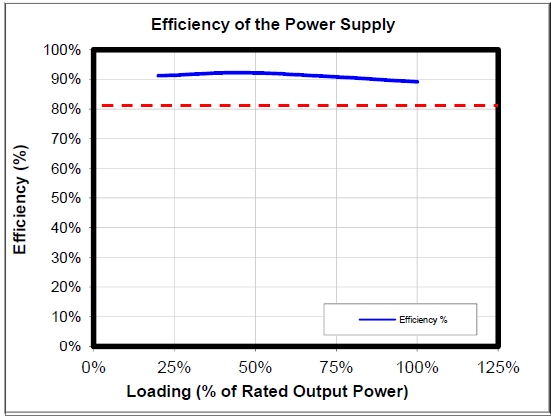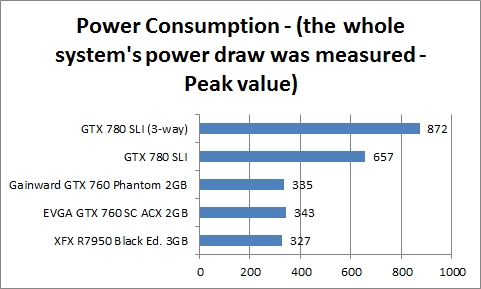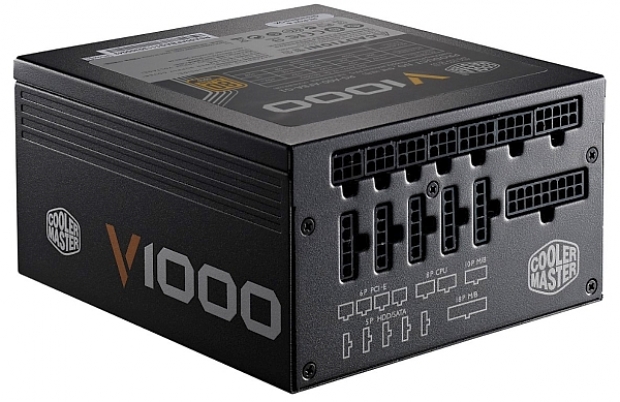Index
Cooler Master V1000 is a 1000W power supply. To be honest, 1000W is quite a lot but today’s high-end hardware leaves a mark on power bills.
V1000 is 80 PLUS Gold certified, which means that it has to churn out 87%, 90% and 87% efficiency for respective workloads of 20%, 50% and 100%. This also means that it's efficient and won't waste energy. Unfortunately, we didn’t have access to professional PSU testing equipment, so we'll have to rely on 80plus.org's data. In fact, 80plus.org gave the V1000 a platinum certificate, which is as good as it gets. The following graph shows that efficiency is above or around 90% most of the time. You can find out more here.

Practical application tests prove that this is a quality PSU. Three Geforce GTX 780 graphics cards in SLI will helped us place a lot of strain on the V1000, so that we could test fan loudness and stability of the entire rig.
One of the problems faced by quite a few high-end PSU users is that their powerful PSUs can cause the fuse to switch off as soon as the PSU is switched on. This shouldn’t happen, but it can happen if the PSU draws too much power, a high inrush current. As for the V1000 we can confirm that we did not experience any such issues and that it draws 40 amps on startup.
In standby mode the power consumption was just 0.2W. Our test rig featured an EVGA X79 FTW motherboard, Sandy Bridge-E Core i7 3820 (4.2GHz) and three Geforce GTX 780 cards in SLI. Under full CPU and graphics card load, V1000 ran like a charm. Maximum consumption was 872W.
The fan (Protechnic MGA13512XF-O2) was inaudible in idle mode. According to the spec sheet, the fan can run at up to 1800RPM but our unit was willing to spin up to 1930RPM under full load. At loads between 600W and 800W the fan is very quiet, but beyond 900W it gets quite a bit louder in order to prevent components from overheating. This is normal and we found that the fan was relatively quiet in everyday use.

